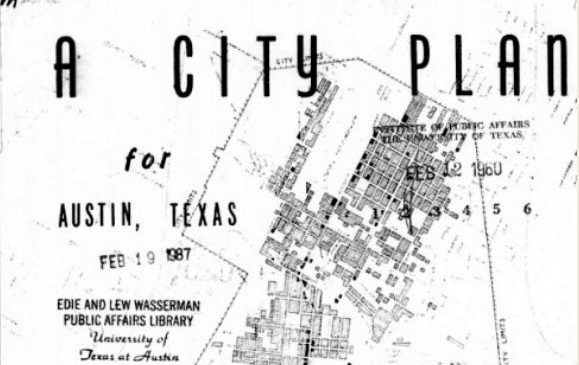Commission talks reversing institutional racism
Monday, July 17, 2017 by
Joseph Caterine Cast out of its usual place in the shadows, racism was put front and center as a topic of discussion during a briefing at the Planning Commission Tuesday night. Eric Tang and Jane Rivera, co-chairs of the Real Estate and Housing work group of Mayor Steve Adler’s Task Force on Institutional Racism and Systemic Inequities, clarified early on that they would not be presenting on individual acts of discrimination but rather focusing on how the city itself, through its policy and enforcement, has contributed to the segregation of Austin by race and income.
In a study he published in 2014, Tang discovered that from 2000 to 2010, Austin was the only major growth city in the United States that saw a net loss in its African-American demographic. “As I look at the census data more carefully, I would probably say that there isn’t another city in the history of the 20th century or the 21st century where you saw a decline in African-Americans against rapid growth in the general population,” Tang said at the meeting.
The 1928 Master Plan mandated that the African-American community, which then had been spread out all over the city, be torn from their homes and moved to East Austin, and Tang said that this relocation set a precedent that has carried forward to today and resulted in the troubling findings of his study. Of course, Tang said, other non-white groups have also suffered from city ordinances, like from the pollution caused by the 1957 Industrial Development Plan that designated industrial overlay zoning in East Austin including single-family neighborhoods.
The work group has arrived at several recommendations to accrue millions of dollars in funds to redress racial inequities in housing, to ensure that fair housing practices are being followed and to respect the right to stay. “This is a much more complex issue than simply affordable housing,” Rivera said.
Commissioner Angela De Hoyos Hart, who served on the Finance, Banking and Industry work group of the task force, applauded the recommendations and commented that she thought many of them were actionable. Hart also stressed how the zoning commissions themselves could better monitor cases for instances of institutional racism. “Zoning cases go through all kinds of reviews,” she said. “It’s embarrassing that there’s no equity review.”
For those that would dismiss racism as a thing of the past, Commissioner Nuria Zaragoza, another member of the task force, brought up an article published in the Austin American-Statesman (since taken down with apology) entitled “Enjoy hipster paradise in East Downtown,” claiming that “a decade ago Austinites would rarely dare to venture to the east side of the I H 35 corridor.”
“No one is going to go out there and say ‘I love gentrification,’” Zaragoza said, “but (gentrification) is something that’s bringing a lot of revenue to developers, and it’s something that’s bringing a lot of revenue frankly to the city.”
Tang also shared another disturbing revelation from his current research. “The people you think are living in the affordable housing in this city are not the people in affordable housing.”
Commissioner Chito Vela corroborated Tang’s statement, stating that he has heard anecdotally that the 80 percent median family income level of affordable housing is being claimed by young professionals and not the low-income families that the city is trying to reach. “I would like to see that number be pushed down,” he said.
Out of all the recommendations that came out of the mayor’s task force, the strategies developed by the Real Estate and Housing work group have the best opportunity to become realized thanks to CodeNEXT, Hart said. To the co-chairs, she added, “Please don’t stop.”
The Austin Monitor’s work is made possible by donations from the community. Though our reporting covers donors from time to time, we are careful to keep business and editorial efforts separate while maintaining transparency. A complete list of donors is available here, and our code of ethics is explained here.
You're a community leader
And we’re honored you look to us for serious, in-depth news. You know a strong community needs local and dedicated watchdog reporting. We’re here for you and that won’t change. Now will you take the powerful next step and support our nonprofit news organization?










